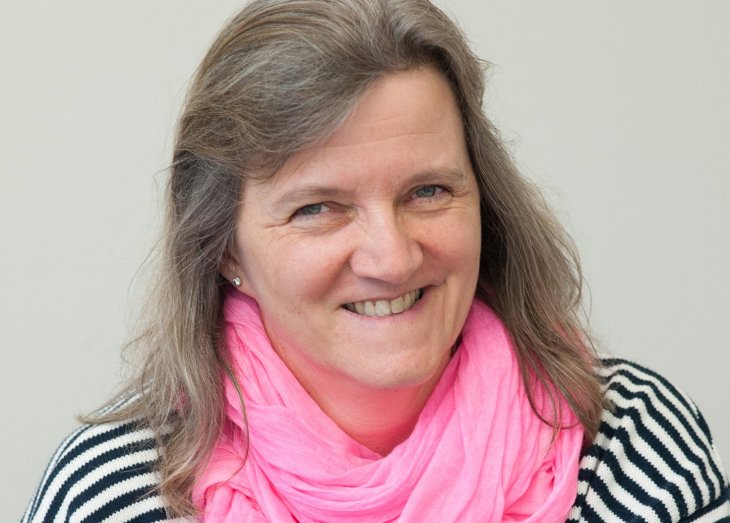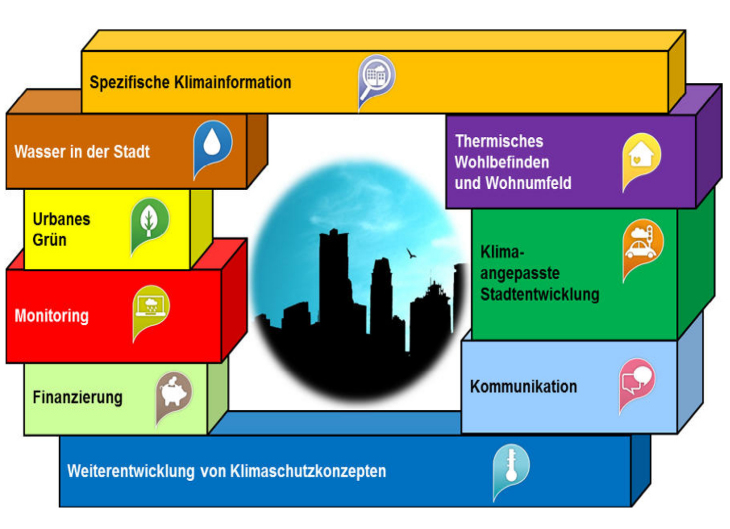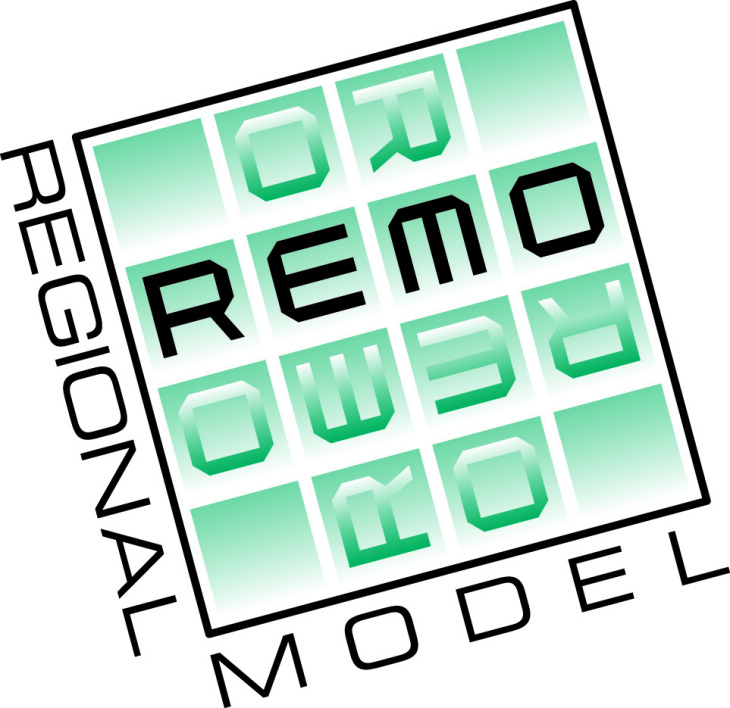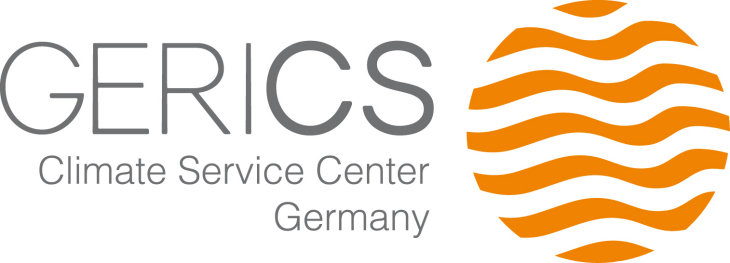Climate Service Center Germany
One year ago, on June 1st, 2014, Daniela Jacob took over as acting director of the Climate Service Center. An appointment committee has recently confirmed Jacob as director, effective immediately. The meteorologist and recognised climate researcher is now head of the center, a scientific establishment located in Hamburg that provides consulting on political, economic and societal matters of climate change adaptation. In the past year, she has advanced new projects and promoted structural adaptation at the center.
Find out more about the new developments at the Climate Service Center in the following interview:
Ms. Jacob, one year as acting director is behind you now. Can you briefly outline the most important points of the year?

Photo: HZG/ Patrick Kalb- Rottmann
With the reorientation of the Climate Service Center, there’s been a shift in focus from a broad mandate as purely a service provider to a focussed objective as a “think tank” for prototype development in climate service. We thus heavily promote the information access we provide to political decision makers, government agencies and the economic sector by developing prototypes for consulting services.
An important measure was the internal restructuring aimed at further supporting cooperation between members of our very interdisciplinary team and increasing internal communication. That was a success! The partitioning of departments plays a rather administrative role and does not influence the substance of our work.
What service-related changes have occurred after restructuring?
We will continue to push the development of application-oriented and integrated information that is suitable in practice as well as consulting services for decision makers—building on our experience of their the information needs from previous years.
We have therefore established three divisions: 1. Creation and strengthening of networks, 2. development of prototypes for products, methods and services and 3. development and execution of professional training programs. Our target groups are stakeholders and decision makers in private companies and in the public service sector, not the wider public.
The prototypes and consulting products for climate services deal with research-based information and methods related to climate questions that support decision making processes, especially the development and implementation of climate change adaptation measures. It is important that we develop these measures together with users and scientific partners. The practicability of the prototypes is then tested.
We do not plan to continue providing evaluated products but to transfer the operational aspect to a third party that is already involved in the product development. Thus the focus of our activities in the future lies in prototype development and research for climate services.
In order to reach our goals in the coming years, we concentrate on priorities in the following sectors: water, energy and ecosystems. Furthermore, we respond to pressing information and data needs requested by cities and communities.
What prototypes have been developed or will be developed for consulting services?

Currently, as well as in the future, we will work in two fundamental prototype areas. In one area, we are developing various "Fact Sheets" (Climate Fact Sheets, Location Fact Sheets, etc.). Our fact sheets provide information in a standardised and succinct format on climate and climate change for states, regions, climate zones and production sites. They were originally developed together with the German development bank KfW.
In the other area, we're developing modular "consultation kits" for cities and communities as well as for the private sector. Adaptation to climate change and avoiding greenhouse gases both play similar roles here. One example includes the “city kit” for supporting cities in terms of challenges and opportunities related to climate change adaptation. This flexible tool delivers city-specific climate information, recommendations for action and advice in regards to individual areas such as “urban green” projects. We are currently developing a "business kit” based on the same modular concept.
Both prototype areas heavily benefit from synergies and their applications extend into other areas, including that of professional training. For the proposed operationalization of the prototypes via third parties, we intend to develop accompanying, training and quality control concepts. Different target group-specific training opportunities are to be developed for dealing with climate change for those who disseminate information, for example, from the hydraulic and civil engineering fields.
Integrating climate knowledge is an important tool for the Climate Service Center. What networks should now be further developed?
Very diverse, living networks are crucial for integrating climate change research and application-oriented knowledge regarding adaptation at the interface between science and practice. These include scientific partner institutions from different disciplines, potential customers and those who disseminate information and have pressing consulting needs, but also partners with proven expertise in transdisciplinary processes.
We are integrated into numerous national and international scientific networks as initiators, coordinators or partners as well as in service-oriented networks. In cooperation with other climate service providers, it is very important to demonstrate – based on various experiences, for example, in Europe – the added value of climate services for decision makers, thus stimulating demand and contributing to a growing market for European climate services. We were co-initiators of the European Climate Service Partnership (ECSP) as well as the international Climate Service Partnership (CSP).
We are active in different university and non-university networks within Germany as well as within the Helmholtz Association. We would also like to further expand our customer and partner networks within science and in the area of climate adaptation. These include establishing a network of professors and the initiation of sector networks comprised of engineers and other experts, for example, from the areas of water management and construction but also a network of small and medium-sized companies (SMEs).
What role does the Climate Service Center play today in national and international climate research?

Working at the interface between science and practice demands that you remain active in research as well as developing a tremendous understanding for practical applications based on scientific results. I’d like to mention our many years of experience in regional climate modelling here.
The REMO regional climate model is one of the leading models worldwide and was developed at the Max Planck Institute for Meteorology under my direction. We have, over the years, established REMO as an internationally leading model and are continuously developing it in cooperation with international partners. Climate simulations with REMO and other regional models are a mainstay of climate services. A new knowledge base is currently under development with the “COordinated Downscaling Experiment” (CORDEX), a World Climate Research Program (WCRP) initiative, in which regional climate projections for defined Earth regions are spatially refined. The Climate Service Center 2.0 was and is heavily involved and uses REMO and various global models to create regional climate projections. These models were used for carrying out numerous simulations for Africa, Asia and Latin America.
Our data evaluation of regional climate model output is of great importance for investigating climate changes and their ranges as well the reliability of their results. In addition, we currently coordinate the EURO-CORDEX initiative, the European branch of CORDEX, together with partners from Greece and Norway. Simulations that have been heavily refined spatially were carried out here and expand the knowledge base on potential climate changes in Germany and Europe.
The Climate Service Center 2.0, together with international partners, also studies how climate information from global and regional models can contribute to climate impact models. Furthermore, studies are carried out on the consequences of climate change as well as in regard to their economic impact. The IMPACT2C project, for example, deals with these types of questions. IMPACT2C is a multidisciplinary, European-wide project supported by the European Commission and coordinated by the Climate Service Center 2.0. It examines what effects a warming of 2°C globally would have on Europe and the three particularly vulnerable regions of Bangladesh, the Maldives and Niger in terms of vulnerabilities, risks and economic costs.
The Climate Service Center 2.0 got its name in 2014. Is it true that another name change is under consideration?

Yes, that is correct. We have a new name and a new abbreviation. For legal reasons, we had to give up the acronym CSC in 2014, and we used the name Climate Service Center 2.0 as an interim solution.
Beginning July 20th, 2015, our new name is “Climate Service Center Germany”. Our abbreviation from now on is GERICS and is easy to remember, short for the German Institute for Climate Services.
Climate Service Center Germany (GERICS)
Phone: +49 (0) 40 226 338-0
E-mail contactChilehaus – Entrance B
Fischertwiete 1
20095 Hamburg
